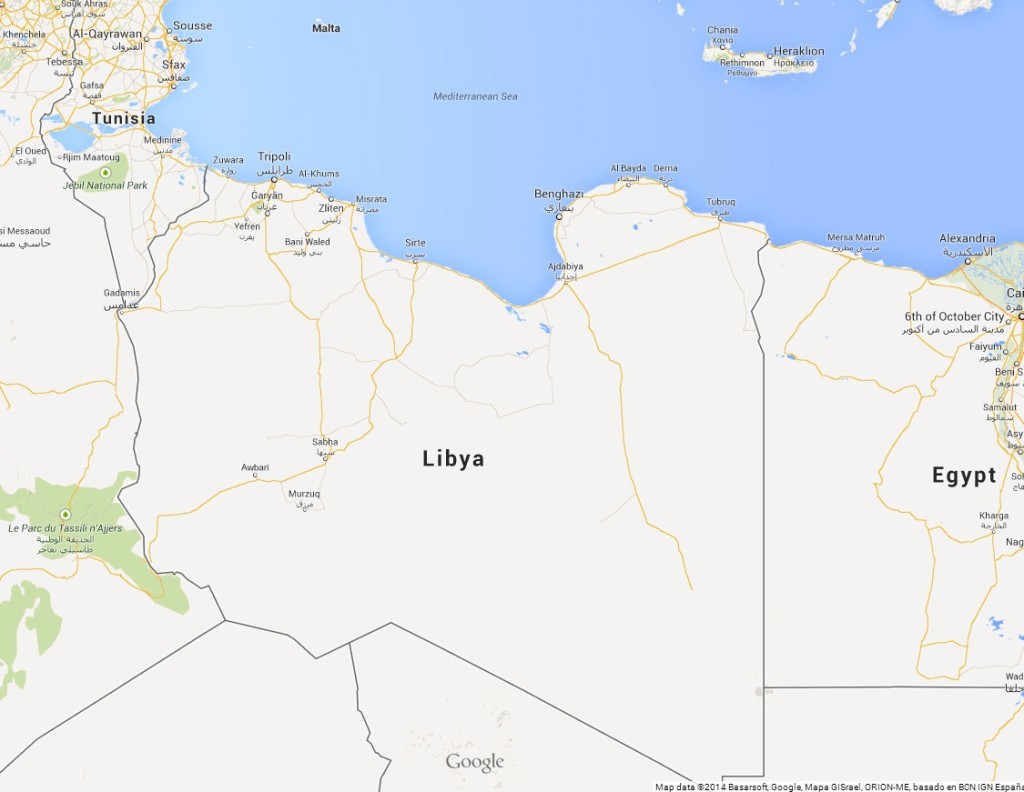
Authorities in eastern Libya vowed to export more crude oil soon, two days after shipping their first cargo in defiance of a national unity government based in Tripoli and in spite of a UN official’s condemnation of such “illicit” sales.
The National Oil Corp. in eastern Libya expects payment within a month for its first shipment of 650,000 barrels of crude, Nagi Elmagrabi, chairman of the NOC in the country’s eastern region, said Wednesday by phone. The money will be deposited into an account at Bank Al Etihad in Jordan, he said, without disclosing the amount. “We are planning to export more crude shipments in the near future,” Elmagrabi said.
The tanker Distya Ameya, which loaded the crude at eastern Libya’s Hariga port on Monday, was stranded in the Mediterranean Sea east of Malta after the island state refused entry to the vessel on Tuesday. The NOC in the capital city of Tripoli in western Libya called the shipment illegal. Martin Kobler, head of the United Nations Support Mission in Libya, echoed that view in a Twitter post, citing UN Security Council Resolution 2278, which “condemns attempts to illicitly export crude oil from Libya.”
Libya, with Africa’s largest proven crude reserves. split into two separately governed regions in late 2014, one centered around Tripoli in the west and an internationally recognized government in the east. Libyans are currently working with foreign support to set up a Government of National Accord. The NOC leadership in Tripoli, recognized by traders such as Glencore Plc and Vitol Group as the country’s official crude marketer, has repeatedly warned firms against loading cargoes from the NOC administration in the east.
The country’s oil production has fallen by 100,000 barrels a day due to a lack of port-storage capacity at Hariga, an Arabian Gulf Oil Co. official said Wednesday. The company, an NOC unit known as Agoco, reduced output to 130,000 barrels a day from 230,000 barrels, the official said, asking not to be identified because of company policy. A tanker moored now at Hariga has been blocked from loading a cargo of 1 million barrels, and Agoco may need to halt production in four days if the situation persists, the official said.
Libya pumped about 1.6 million barrels a day of crude before the 2011 rebellion that ended Moammar Al Qaddafi’s 42-year rule. It’s now the smallest producer in the Organization of Petroleum Exporting Countries, pumping 330,000 barrels a day in March, data compiled by Bloomberg show. Since Qaddafi’s ouster and death, armed militias are also competing for control of the nation’s oil facilities.
The NOC in eastern Libya has been trying for several months to export oil independently, Riccardo Fabiani, North Africa analyst with the Eurasia Group, said by phone from London. The eastern administration needs the revenue such sales can generate, but its main goal is to undermine the Government of National Accord, he said.
“No one is willing to accept that the eastern government is able to sell oil independently because it would have devastating consequences for Libya,” Fabiani said. “It would be much, much harder to form a national unity government in that case.”
The cargo refused by Malta was sold to DSA Consultancy FZC, a company based in the United Arab Emirates, according to Elmagrabi of the eastern NOC.